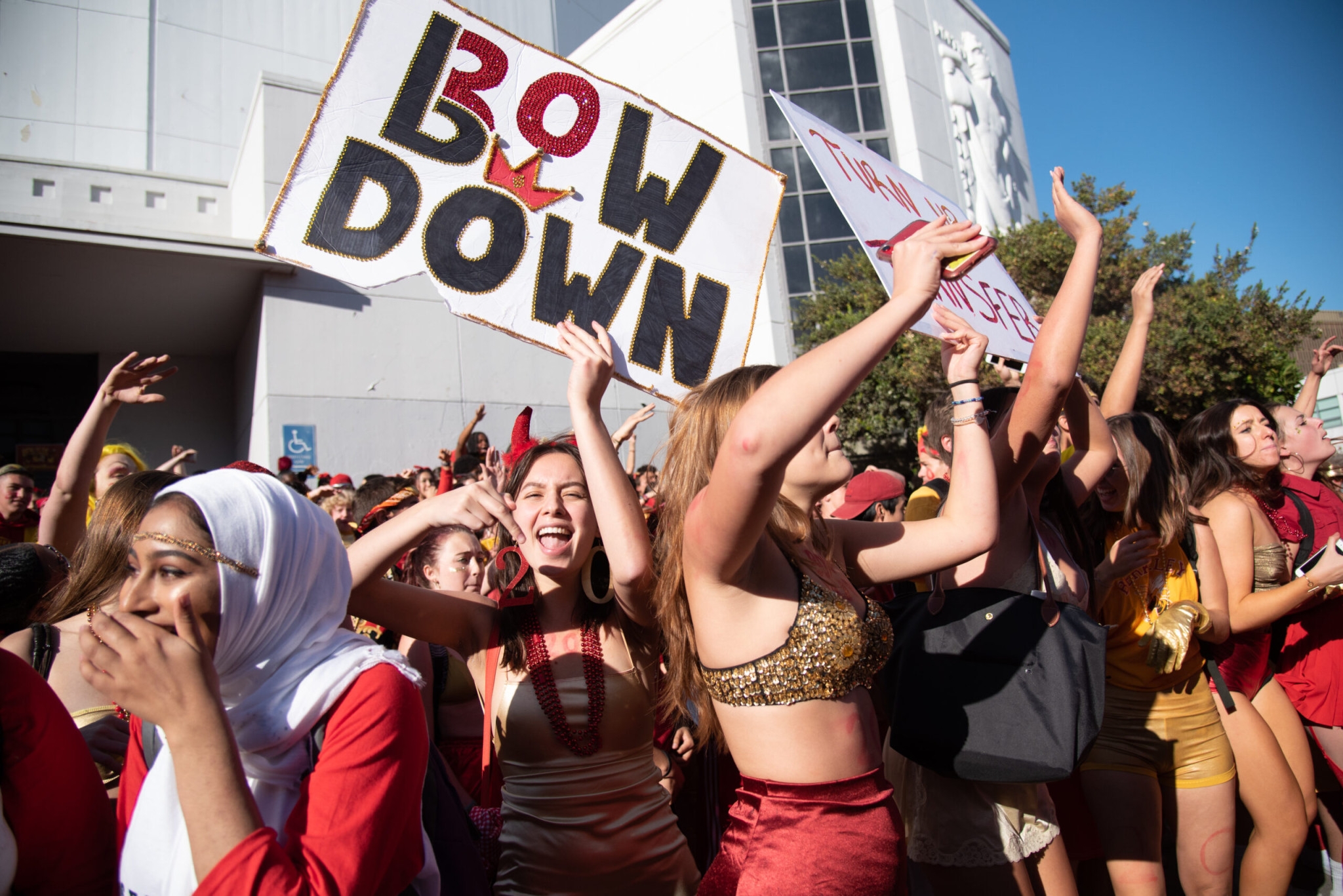Each year, teachers and administrators at Berkeley High School (BHS) become increasingly tense as the days count down to Red and Gold Day, otherwise known as Rally Day. Emails are sent out to students and parents to inform them about the punishments students will receive for exhibiting certain illegal behaviors expected to take place on this day. Every year, there is a push from the administration and student leadership for unity between the grades. There is always hope for a positive, enthusiastic environment at BHS on that anticipated Friday, yet when Rally Day inevitably comes, those hopes are drowned out by whistles, speakers, and loud chants of “Seniors,” “Juniors,” “Bow Down,” graduation years, and a variety of profanities.
This year’s Rally Day, on November 1, followed the trend as expected, with incredibly loud shouting in the hallways and throughout campus, students intoxicated at school, students engaging in physical violence, and rallying in the streets after school to eventually take over Shattuck Avenue. All of this behavior is incredibly difficult for the BHS administration to manage, and it raises an important question: why does Rally Day prompt such behavior? The answer has been the same for many years. Rally Day is not about students defying the administration for the sake of being a pain; it is about having a day where students have power over the rules and their own lives.
We must recognize that the shouting that seems obnoxious to many adults is not just about class pride for students, but about pride in oneself. Every day, students internalize the message that they are inferior to their parents, teachers, administrators, and even older siblings. As they sit at desks for hours on end, forced to follow the rules of the institution, they long for the day that this reality does not reign over their life. Rally Day is the day that BHS students can claim superiority, not only to their younger schoolmates but also towards the adults around them. Students feel they deserve Rally Day because they have spent so long waiting for an opportunity to have the power in school. However, this entitlement has manifested itself in a culture that is violent and often hateful. For student behavior on Rally Day to change, a shift in culture is necessary. This change can only come from the student body. We are all capable of having fun and enjoying ourselves in ways that do not involve violence or hate. Social change has taken place at BHS in the past, and as long as there is student support, Rally Day could improve in the future.
No matter how hard BHS administrators try to disperse themselves throughout campus so they can intervene in fights, reprimand students, or attempt to spread messages of unity, their work is in vain due to the rebellious attitude that students adopt on Rally Day. This is not to say that the BHS administration should stop doing the work to prevent illegal and inappropriate behavior on campus. Students understand that the faculty are just trying to do their jobs; most students are strongly opposed to the violent tendencies that their peers exhibit on this day. However, teachers and administrators must acknowledge that they will never be able to establish peace and unity on Rally Day, because Rally Day is about disruption, and will continue to cause problems for the school administration as long as the culture of the day exists.
If BHS wants to have an enjoyable Rally Day, the student body must unite around one common goal: unity. Chanting “Seniors” or “Juniors” at the steps should not lead to physical harm. We need a radical change of mentality — one that does not pit us directly against our classmates. This change might come through not yelling our grade-specific chants or even having a school-sanctioned after school activity like past rallies had. Saying the number “22” should not lead to someone getting jumped. People were hurt — physically and emotionally — and for what? If the student body wants fun without violence, they will have to work for it. We should promote a space of love and care, not of hate and disrespect. Student behavior must change to reduce tensions between grades, as well as between students and administration.





